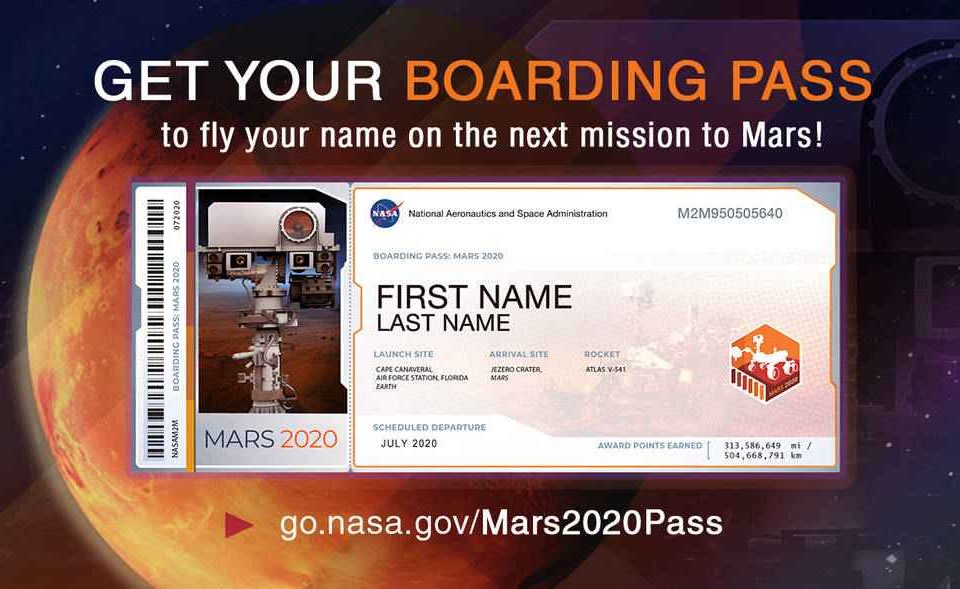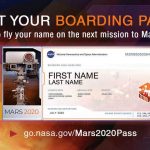NASA is now accepting applications from members of the public to submit their names to fly aboard next Mars Rover

Although it will be years before the first humans set foot on Mars, NASA is giving the public an opportunity to send their names — stenciled on chips — to the Red Planet with NASA’s Mars 2020 rover, which represents the initial leg of humanity’s first round trip to another planet. The rover is scheduled to launch as early as July 2020, with the spacecraft expected to touch down on Mars in February 2021.
The rover, a robotic scientist weighing more than 2,300 pounds (1,000 kilograms), will search for signs of past microbial life, characterize the planet’s climate and geology, collect samples for future return to Earth, and pave the way for human exploration of the Red Planet.
“As we get ready to launch this historic Mars mission, we want everyone to share in this journey of exploration,” said Thomas Zurbuchen, associate administrator for NASA’s Science Mission Directorate (SMD) in Washington. “It’s an exciting time for NASA, as we embark on this voyage to answer profound questions about our neighboring planet, and even the origins of life itself.”
The opportunity to send your name to Mars comes with a souvenir boarding pass and “frequent flyer” points. This is part of a public engagement campaign to highlight missions involved with NASA’s journey from the Moon to Mars. Miles (or kilometers) are awarded for each “flight,” with corresponding digital mission patches available for download. More than 2 million names flew on NASA’s InSight mission to Mars, giving each “flyer” about 300 million frequent flyer miles (nearly 500 million frequent flyer kilometers).
From now until Sept. 30, you can add your name to the list and obtain a souvenir boarding pass to Mars here:
https://go.nasa.gov/Mars2020Pass
The Microdevices Laboratory at NASA’s Jet Propulsion Laboratory (JPL) in Pasadena, California, will use an electron beam to stencil the submitted names onto a silicon chip with lines of text smaller than one-thousandth the width of a human hair (75 nanometers). At that size, more than a million names can be written on a single dime-size chip. The chip (or chips) will ride on the rover under a glass cover.
NASA will use Mars 2020 and other missions to prepare for human exploration of the Red Planet. As another step toward that goal, NASA is returning American astronauts to the Moon in 2024. Government, industry and international partners will join NASA in a global effort to build and test the systems needed for human missions to Mars and beyond.
The Mars 2020 Project at JPL manages rover development for SMD. NASA’s Launch Services Program, based at the agency’s Kennedy Space Center in Florida, is responsible for launch management. Mars 2020 will launch from Cape Canaveral Air Force Station in Florida.

